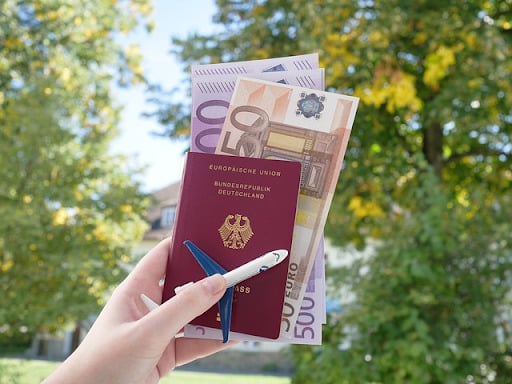Having multiple citizenships in today’s interconnected world is a huge plus. A person with dual nationality status can enjoy various benefits. With multiple citizenships, individuals can access a whole host of opportunities – be it a better lifestyle, world-class education and healthcare, or terrific investment programs and real estate projects.
To obtain multiple citizenships, the applicant needs to adhere to certain guidelines and meet the complete list of requirements, which will vary from country to country. In this article, we will talk about how many citizenships can you have, the process of obtaining second citizenship through investment programs, plus much more.
Can you have multiple citizenships?
Yes, an individual can have multiple citizenships. But the number of citizenships completely depends on your home country’s rules and regulations. For instance, individuals from countries like India and Singapore cannot acquire multiple citizenships. Although most countries allow dual or multiple citizenships, there are certain guidelines that one must follow. If you are a national of a country that doesn’t allow its citizens to apply for multiple citizenships, your native country’s citizenship and passport can be retracted. Nevertheless, if your native country allows its citizens to obtain dual citizenship, you can easily obtain citizenship status in a foreign country of your choice.
How to obtain multiple citizenships?
Although it might look tedious to obtain a second citizenship, in reality, the process can be quite simple. There are various ways through which you can obtain second citizenship. Here we’ll provide you with some insights into the most common routes to citizenship.
Birth
Countries like Canada and the United States grant citizenship to any individual born on their territory. Therefore, this type of citizenship is granted to an individual by his/her birth. This is one of the many reasons why people want their children to be born in the United States, so that they can obtain American citizenship by birth.
Marriage
If you get married to someone who is a national of a different country, you can file an application for a passport and citizenship in that country. For example, if you marry an American citizen, you are eligible to apply for a green card first and citizenship next in the US. Applicants must note that a background check will be conducted by respective departments to rule out foul play involved in the marriage. You should also note that different countries have different criteria for obtaining citizenship through marriage.
Naturalization process
Immigrants generally opt for the naturalization process to obtain a second citizenship. Applicants who are legally residing in another nation can take this route to obtain citizenship. The applicants need to be permanent residents of the country and have been residing there for a particular amount of time. However, the guidelines for the naturalization process differ from nation to nation. For instance, in the United Kingdom, individuals can apply for British citizenship through naturalization law after completing five years of residency in the country. But in the case of Greece, applicants need to reside in Greece for seven years consecutively to apply for Greek citizenship status.
Citizenship by Investment
Countries that have their own citizenship by investment programs allow interested individuals to acquire dual citizenship status or multiple citizenships. Through this program, countries grant citizenship to applicants in return for an economic investment in the country. You can easily obtain a second citizenship in countries like Malta, Grenada, Dominica, Vanuatu, Portugal, Curacao, and more by investing a certain amount of your money in real estate projects or government funds, alongside other routes. To know more about the countries offering citizenship through investment in 2022, you can check out our article: Citizenship By Investment Countries List 2024.
In countries like Portugal, you need to first secure a residency through the residency by investment program and then move to filing for citizenship through the naturalization process.
Benefits of citizenship by investment programs
- Opportunity to reside, work and invest in stable and safe countries
- With a second passport, you can enjoy visa free travel to various other countries across the globe
- Opportunity to diversify your economic investments and assets
- You can enjoy various tax benefits upon acquiring citizenship. In fact, a few countries have a zero tax policy on worldwide income.
- Your entire family is eligible through your application
- A second passport can also act as your alternative plan to reside and work
- You can apply for a second citizenship in exchange for economic investment starting at a minimum investment of $100,000.
Note that some of the easiest countries in which you can apply for citizenship are Malta, Grenada, Antigua and Barbuda, St Lucia, St Kitts and Nevis, and Dominica. To know more about the CBI programs of these countries, visit our article: Easiest countries to get citizenship.
How many citizenships should you consider having?
You can apply for any number of passports, but do consider a few important factors before applying for a second citizenship or multiple citizenships. Generally, four passports are more than enough for an individual. For few people, even two to three passports are adequate for their passport portfolio diversification. But first, you will need to obtain a second passport. Once you have a second passport, you can decide on the number of citizenships you want to have after it. Make sure to keep a note of all your requirements and then try building a passport portfolio in a way that meets all your essential needs.
Determine your needs
Before you identify the number of passports you want, you should make a mental note of things that you require and want. For example, if you are already a US or UK citizen, it will be beneficial for you to obtain citizenship in a country that will cater to your other needs. That way, you will be able to create a diverse passport portfolio and meet your other needs.
If you are planning to obtain second citizenship in a tax-friendly country, then you can apply for citizenship in the Caribbean countries. If you are someone who needs to travel for work or business, or that wants to travel easily for leisure, always consider applying for citizenship in a country with a passport that allows you to travel visa free to many countries across the world. Visa free travel is generally a very important determinant for individuals obtaining second citizenship or applying for multiple citizenships.
Portfolio diversification
By acquiring multiple citizenships, you can diversify your passport portfolio. But while you are applying for your second passport, make sure that you don’t face any issues/obligations with regards to your current one.
Before applying for a second citizenship or multiple citizenships, make sure to do a full background check on the country that you are applying for. If the country offers similar benefits and features as your current one, then it is better to go for another country’s passport that comes with a different set of benefits. In this way, you can add a little diversity to your passport portfolio. Imagine, you are an US citizen, so for you it’s always advantageous to have a second passport of some Caribbean countries or an EU country that will ensure a few different benefits and thereby add value to your existing portfolio. Before determining the country that you want to apply for a second citizenship, here is a list of questions that you should have answers to:
- Will obtaining a second passport from a new country improve my current status and condition?
- What are the travel benefits that the new country’s citizenship will offer?
- Will I be safe and secure in the new country?
Only after having answers to these important questions, identify the country that you would want to apply for citizenship.
Identify the passports you want to retain
To keep a balanced passport portfolio, you need to first identify the passports that you want to have. You may only want to forgo your passport if the country imposes any rigid restrictions or rules that are not suited to your needs Otherwise there is no need to part with any of your passports. But in case you have three to four passports with similar features and benefits, you may strategically want to give up one of them. For instance, if you have both a United States and a Canadian passport, you may choose to keep any one of them. Although, there is no need to give up any passports if you don’t want to.
Select the place of your residency
In addition to adding diversity to your passport portfolio, it is very important to first decide on the country in which you want to live. For that, you need to know the country – the weather, culture, investment opportunities, education, healthcare, work-life balance, and lifestyle. Only after considering all these important factors, you should go ahead to file your residency by investment application. Even if you are a permanent resident in that country, you might want to obtain citizenship to enjoy all the rights guaranteed by the citizenship laws and added benefits that the country offers to all its citizens, such as …
If you want to reside in a particular country just for their living standards, it is advisable to get a permanent resident permit first. After you stay there for a specified period of time and if the country suits you, you can also apply to acquire citizenship.
Another thing to note is that, if you are a US citizen, you can apply for dual citizenship through the following Citizenship By Investment programs in these countries:
- Malta Citizenship by Investment
- Dominica Citizenship by Investment
- St Kitts and Nevis Citizenship by Investment
For more details on dual citizenship for US citizens, visit our article: Does the US allow dual citizenship?
How many citizenships can you have? -Short Overview
To answer the question, “How many citizenships can you have?” The answer boils down to what your native country allows. You can acquire as many citizenships as you want to, provided the citizenship laws in your home country or any country you hold citizen allow dual or multiple citizenships. While many countries allow dual citizenship or having multiple citizenships simultaneously, a few countries don’t allow the same or ask individuals to give up their current citizenship to obtain the other.
Before you obtain multiple citizenship, decide the country that you want to apply for citizenship and the number of passports you want to have as per your passport portfolio strategy. After you decide on these vital elements, you can begin your application for citizenship through a citizenship by investment program. Today, you can also obtain citizenship using bitcoin in some cases, in countries like Vanuatu, Antigua and Barbuda, Malta, and Portugal.
For more details on citizenship by investment programs and the need to apply for second citizenship or multiple citizenship, you can check out our article: Citizenship by Investment Comparison Guide.
Frequently Asked Questions
What is the maximum number of citizenships that you can obtain?
Although, theoretically there is no number cap on the amount of citizenships that an individual can hold, in general, it is ideal to have two or more citizenships as per the applicant’s needs and requirements. Applicants must also note that the number of citizenships that they can hold also can be decided on the basis of citizenship laws of their native country.
Is dual citizenship allowed in the United States?
Yes, the United States allows dual citizenship to individuals. This means that citizens of the US can apply for a second citizenship, while keeping their American citizenship. Your citizenship status in another country will not hamper your citizenship status in the United States.
What is the number of citizenship that you can have in the United Kingdom?
The UK government allows dual citizenship for its citizens. This means that while you become a citizen of another country, you also get to retain your British citizenship.
Can a person have four citizenships?
Yes, an individual can have four citizenships at the same time. It will completely depend on the citizenship guidelines imposed by the countries that they want to file their citizenship application with.
To know more, you can contact us. Our team of experts will take you through all the nitty-gritty of acquiring multiple citizenships. We will ensure you have a seamless experience while you file for your application for your next citizenship. Contact us.
It is legal to have three citizenships?
The legality of having multiple citizenships depends on which countries an individual holds citizenship with. A US citizen can have three or more citizenships, provided the other countries of citizenship also allow three citizenships.
It is legal to have four citizenships?
The permissibility of holding four citizenships varies depending on the countries involved. While a US citizen can possess four or more citizenships, this is subject to the other countries’ policies on multiple citizenship. It is important to note that not all countries allow individuals to hold four citizenships, so it is crucial to consider the specific regulations of each country in question.
How many citizenships can a US citizen hold?
A US citizen is free to hold multiple citizenships, as the United States does not restrict its citizens from acquiring and retaining citizenship from other countries. Therefore, there is no specific limit on the number of citizenships a US citizen can hold. However, it’s important to note that the nationality laws and regulations regarding multiple citizenships vary among different countries. It is advisable to consult with the relevant authorities or seek legal advice to understand the specific rules and implications of holding multiple citizenships in different countries.
How many citizenships can you get in a lifetime?
The number of citizenships an individual can acquire in a lifetime depends on the laws and regulations of each country they have or wish to acquire citizenship from. Some countries permit their citizens to have multiple citizenships, allowing individuals to acquire citizenship from multiple nations without restrictions. However, other countries have restrictions on dual or multiple citizenship, requiring individuals to renounce their previous citizenship(s) upon acquiring a new one. Additionally, the eligibility criteria for acquiring citizenship vary across countries. It is essential to consult with the relevant authorities or seek legal advice to understand the specific rules and limitations regarding multiple citizenships in each country of interest.












